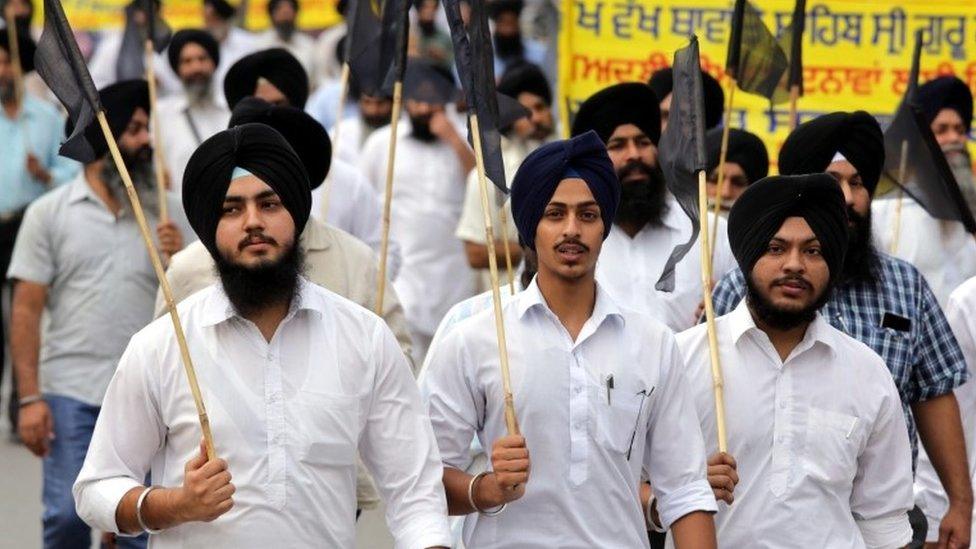Navjot Singh Sidhu: India's controversial cricketer-turned-politician
- Published
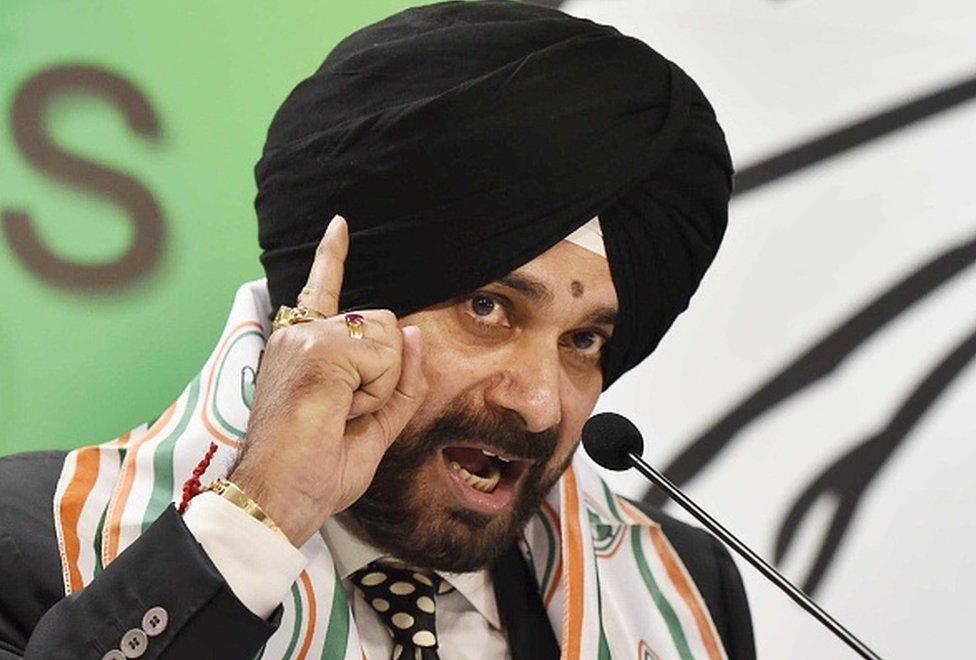
A peacenik, Mr Sidhu counts Pakistan Prime Minister Imran Khan among his friends
In 1996, Navjot Singh Sidhu kicked up a storm by walking out of India's cricket tour of England and flying home after a fight with his captain Mohammad Azharuddin.
A former cricket board official wrote in a recent memoir that Mr Sidhu, then one of India's established players, was apparently hurt over some swear words used by his captain in "good humour".
Two years later, Mr Sidhu allegedly hit a 65-year-old man in a dispute over parking, external in Patiala city in Punjab. The man later died in hospital. A court in 2006 found him guilty of manslaughter. He appealed and in 2018, the Supreme Court convicted, external him with a small fine for causing hurt, but acquitted him of manslaughter.
A flamboyant and outspoken personality, Mr Sidhu, 57, has incessantly courted attention and controversy. Earlier this week, he caused a political kerfuffle in his latest avatar as the chief of the Congress party in Punjab, one of the three states where India's main opposition party is in power.
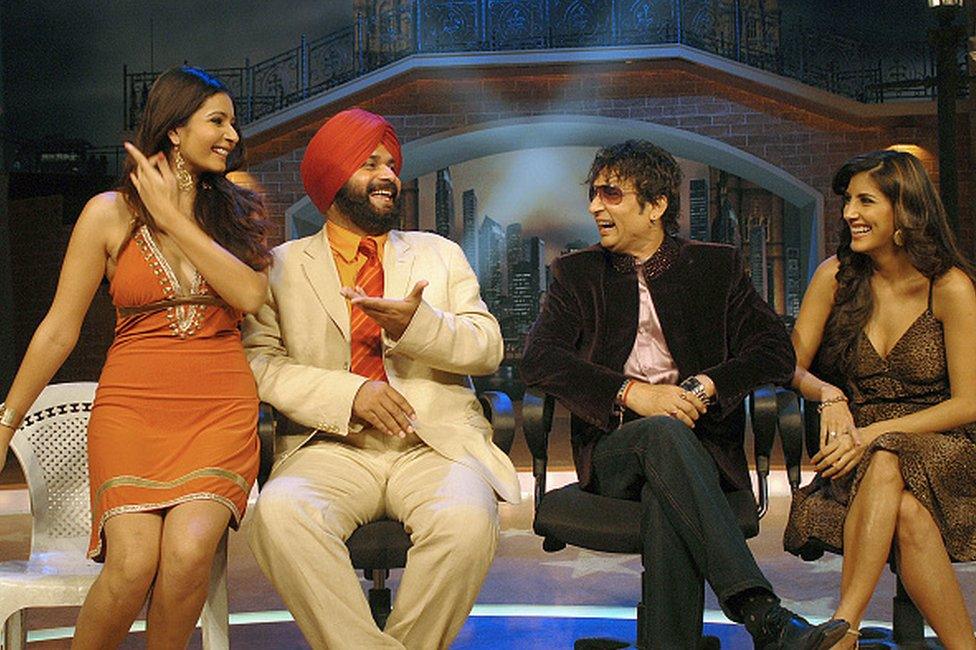
Mr Sidhu (second from left) was a popular judge of comedy talent shows
Barely three months after being chosen to lead the party and days after the departure of his main rival and former chief minister Captain Amrinder Singh, a doughty ex-soldier and a veteran politician, Mr Sidhu handed in his resignation this week.
He is apparently peeved over "inappropriate" appointments in the government of new Chief Minister Charanjit Singh Channi. Mr Sidhu's actions have left the party leadership red-faced and provoked memes. "I am willing to sacrifice anything but will stick to my principles. I do not hanker after any posts," he said after quitting.
Mr Sidhu's critics disagree. They say that after 17 years in politics - first with the Hindu nationalist BJP and currently with the Congress - he remains an "impulsive and self-centred" politician. "He's a very unusual politician. He's not very seasoned, speaks out of turn, isn't a team player, doesn't weigh his words and is temperamental," says Ashutosh Kumar, a political scientist.
Mr Sidhu's friends describe him as a protean maverick who has successfully straddled a number of careers. He's been an international cricketer, a TV commentator, a permanent guest on India's biggest comedy show and a judge on others, and a reality TV contestant.
A peacenik, he counts Pakistan Prime Minister Imran Khan among his friends. "My friend Imran Khan has made my life successful. He separated politics from religion," he once said.
Mr Sidhu's cricket, say experts, reflected his many personalities. He was, at once, a dour batsman and a swashbuckling hitter of ball. (He played in 51 Test matches for India between 1983 and 1999, scoring an average 42.13.) "To improve his performance, he never went to parties, movies or followed any other despicable habit," a news magazine once wrote while listing his "lesser known" qualities. Mr Sidhu is also deeply religious, and a vegetarian.
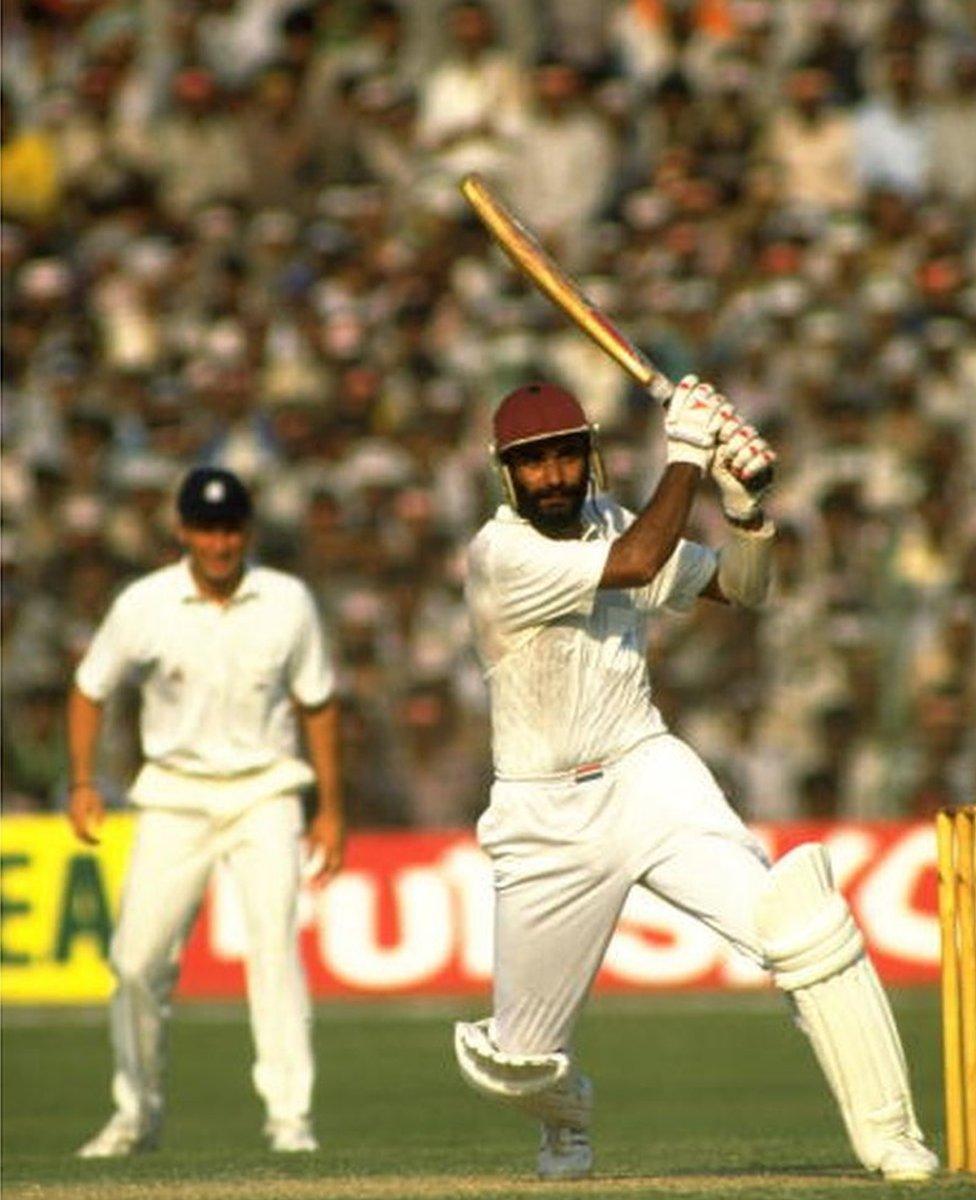
Mr Sidhu was a swashbuckling batsman

In his second career as a commentator, the ebullient Mr Sidhu gained a cult following for his home-grown wisecracks, "mauling the spoken word with a unique, entertaining concoction of mixed metaphors and garbled clichés", as writer Amit Varma described it. Take some examples of "Sidhuisms", as his sayings are famously called: "Positive anything is better than negative nothing" and "An idle mind is where mischief hatches eggs".
Then came a career as a sharply dressed guest in a laugh-loud popular comedy show where he wore bright turbans and colour-coordinated suits. In 2019, he was fired from the show over his comments after a suicide attack killed more than 40 Indian soldiers in Indian-administered Kashmir. Mr Sidhu's remark - that it was futile to blame Pakistan for the folly of a "few individuals" - was seen as unpatriotic and extensively criticised.
Ayaz Memon, a cricket writer, says Mr Sidhu turned to politics "using his popularity as player and commentator to profitable results as a vote-catcher". He has a keen sense of the zeitgeist and draws crowds because of his colourful oratory.
In 2004, he joined the BJP and won from the Amritsar seat in Punjab. In 2016, he quit after the party refused him a ticket. Next year, ahead of the state elections, he joined the Congress. "He's highly ambitious and appears to have miscalculated his moves with his latest resignation," says Rahul Verma, a fellow with the Delhi-based Centre for Policy Research.
With state elections barely five months away, Mr Sidhu has positioned himself as a politician of principles who wants to "save" Punjab. The northern state is in ferment. Farmers are protesting planned market-friendly reforms. A continuing fallout of the 2015 desecration of the Sikh holy book remains an emotive issue with local people. Drug abuse is high. There's deep-rooted corruption with politically-connected cartels running lucrative businesses.
Mr Sidhu himself remains untainted by allegations. "If I have to clear the muck, then I have to stay in the muck," is one of his trademark wisecracks. But the latest actions of the enfant terrible of Indian politics have embarrassed his already beleaguered party no end - his critics say he remains unhappy that he hasn't been made the chief minister. "Mr Sidhu is a man in a hurry," Ashutosh Kumar says. "He has to learn to be patient and be less entitled."
- Published14 December 2018
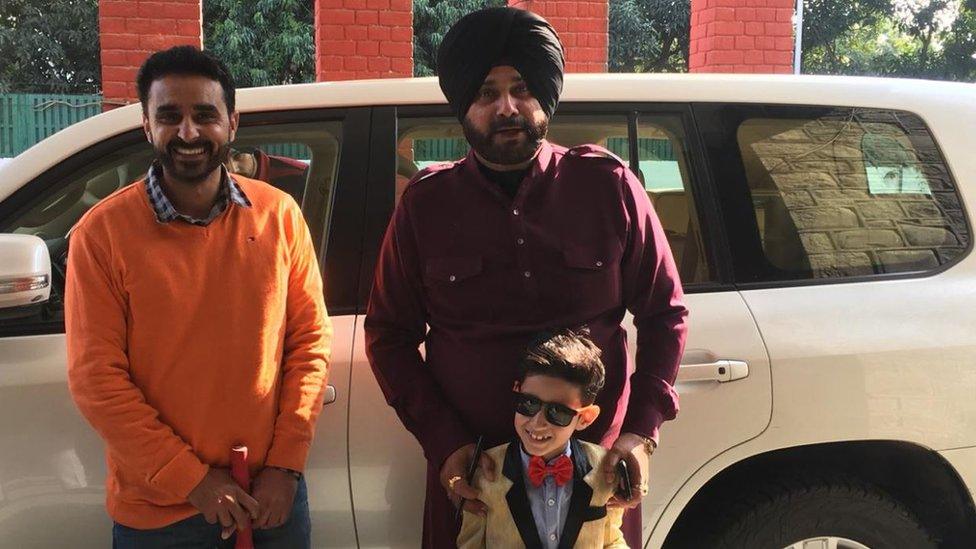
- Published20 September 2021
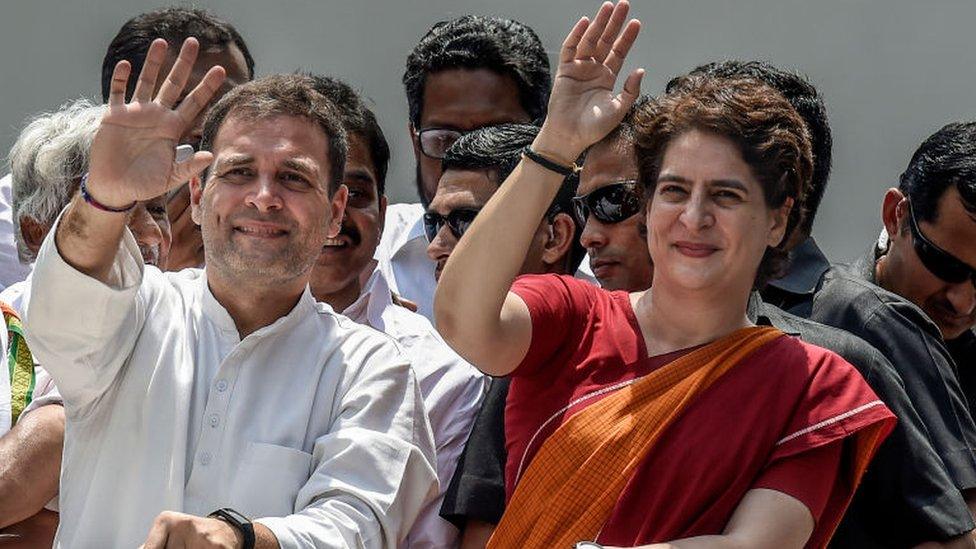
- Published20 October 2015
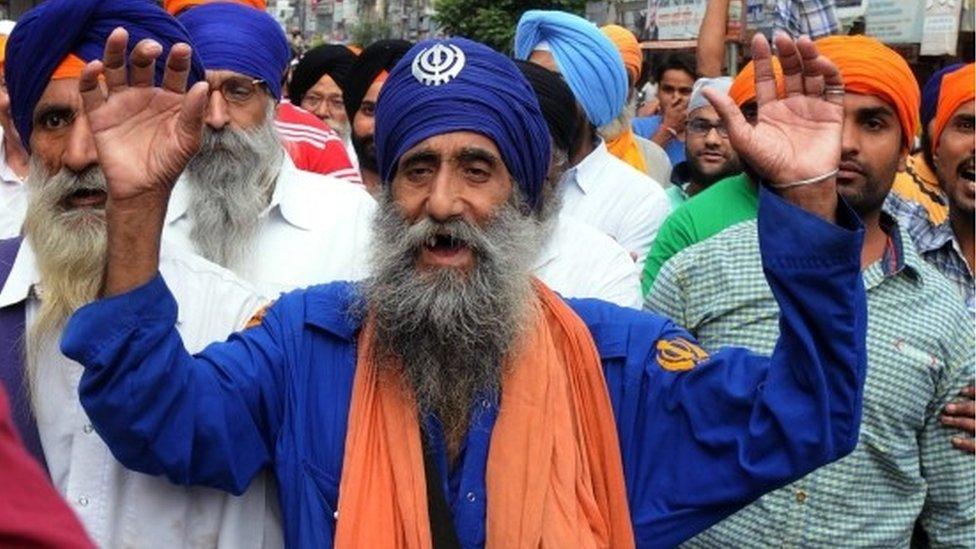
- Published30 October 2015
